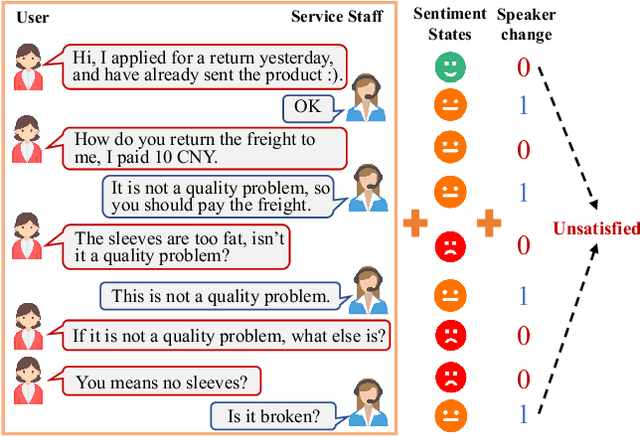A Speaker Turn-Aware Multi-Task Adversarial Network for Joint User Satisfaction Estimation and Sentiment Analysis
Paper and Code
Oct 12, 2024



User Satisfaction Estimation is an important task and increasingly being applied in goal-oriented dialogue systems to estimate whether the user is satisfied with the service. It is observed that whether the user's needs are met often triggers various sentiments, which can be pertinent to the successful estimation of user satisfaction, and vice versa. Thus, User Satisfaction Estimation (USE) and Sentiment Analysis (SA) should be treated as a joint, collaborative effort, considering the strong connections between the sentiment states of speakers and the user satisfaction. Existing joint learning frameworks mainly unify the two highly pertinent tasks over cascade or shared-bottom implementations, however they fail to distinguish task-specific and common features, which will produce sub-optimal utterance representations for downstream tasks. In this paper, we propose a novel Speaker Turn-Aware Multi-Task Adversarial Network (STMAN) for dialogue-level USE and utterance-level SA. Specifically, we first introduce a multi-task adversarial strategy which trains a task discriminator to make utterance representation more task-specific, and then utilize a speaker-turn aware multi-task interaction strategy to extract the common features which are complementary to each task. Extensive experiments conducted on two real-world service dialogue datasets show that our model outperforms several state-of-the-art methods.
 Add to Chrome
Add to Chrome Add to Firefox
Add to Firefox Add to Edge
Add to Edge